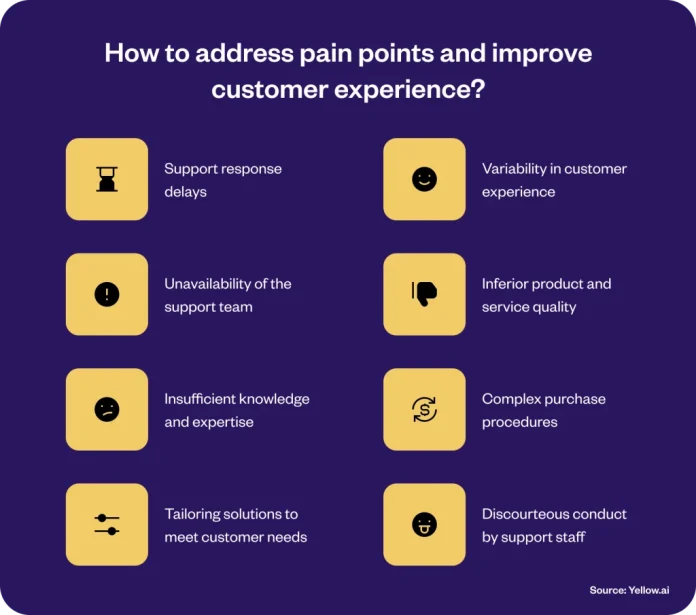Leveraging AI to Address Common Customer Service Pain Points
In the competitive landscape of customer service, organizations often face various pain points that hinder their ability to deliver exceptional experiences. Fortunately, artificial intelligence (AI) offers innovative solutions to address these challenges, streamlining processes and enhancing customer satisfaction.
One of the most common pain points in customer service is long wait times. Customers today expect quick responses and solutions, and any delays can lead to frustration. AI-driven chatbots and virtual assistants can handle routine inquiries and provide instant responses, significantly reducing wait times. By automating simple tasks, businesses can ensure that customers receive timely assistance while freeing human agents to focus on more complex issues.
Another significant challenge in customer service is the inconsistency in responses. Customers may encounter different answers to the same question depending on the representative they speak with, leading to confusion and dissatisfaction. AI technologies can provide standardized responses based on data-driven insights, ensuring consistency in communication across all channels. This level of reliability builds trust and confidence in the brand.
AI also plays a crucial role in personalizing customer interactions. Many organizations struggle to deliver tailored experiences due to the sheer volume of customer data they manage. AI can analyze customer histories, preferences, and behaviors to provide personalized recommendations and solutions. This level of personalization enhances customer engagement and fosters long-term loyalty.
Moreover, AI technologies can help businesses gather and analyze customer feedback more effectively. Traditional feedback collection methods may fail to capture the full range of customer sentiments. AI can process unstructured data from various sources, providing organizations with valuable insights into customer experiences and preferences. This data-driven approach enables businesses to identify trends and areas for improvement quickly.
Additionally, AI can assist in predicting customer needs and behaviors. By analyzing historical data, AI can forecast potential issues and recommend proactive solutions. For example, if data indicates that a customer is likely to experience a problem based on their usage patterns, businesses can reach out with solutions before the issue escalates. This proactive approach not only enhances customer satisfaction but also reduces support costs.
In conclusion, leveraging AI to address common customer service pain points is essential for organizations striving to deliver exceptional experiences. By automating tasks, ensuring consistency, personalizing interactions, gathering insights, and predicting needs, businesses can enhance their customer service operations and foster lasting relationships.
Discover how AI in customer service can help your organization overcome challenges and drive success.



















